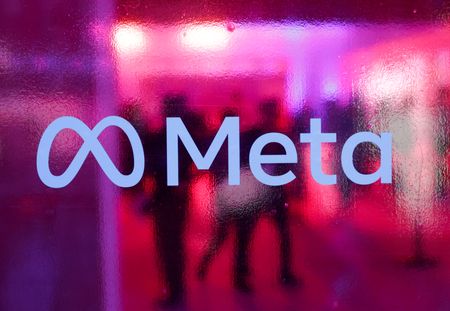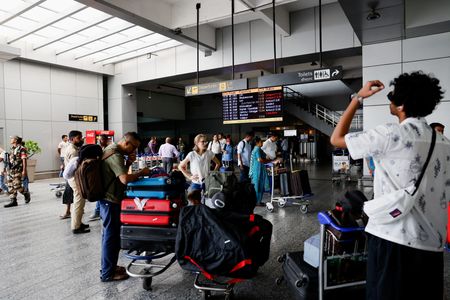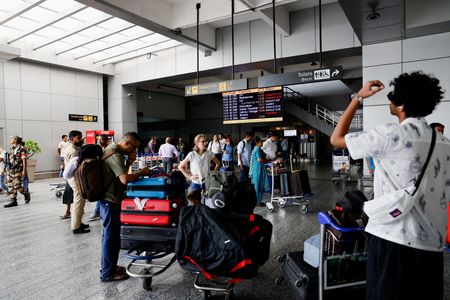By Arpan Chaturvedi
NEW DELHI (Reuters) – An Indian tribunal temporarily suspended a five-year data sharing ban between WhatsApp and owner Meta Platforms, a major relief for the U.S. giant which had warned its advertising business will be affected.
Meta had challenged the Competition Commission of India’s (CCI) directive issued in November that imposed a ban on data sharing between WhatsApp and other Meta entities for advertising purposes, warning it may have to roll back some features. Meta also criticized the CCI for not having the “technical expertise” to understand the ramifications of its order.
On Thursday, India’s National Company Law Appellate Tribunal ordered a suspension of the data sharing ban while it continues to hear Meta’s challenge to the antitrust ruling.
The ban “may lead to a collapse” of WhatsApp’s business model, the tribunal noted.
India is the biggest market for Meta where it has more than 350 million Facebook users and over 500 million people using WhatsApp.
Meta earlier told the appeals tribunal that it may have to “roll back or pause” some features such as those that would allow an Indian fashion business, for example, to personalize ads on Facebook or Instagram based on their interaction with a WhatsApp user.
Facebook’s registered entity engaged in selling advertising in India – Facebook India Online Services – reported revenue of $351 million in 2023-24, the highest in at least five years.
A Meta spokesperson said it welcomed the ruling and “will evaluate next steps.” The CCI did not immediately respond to a request for comment on the ruling, although the watchdog can challenge the decision in the Supreme Court if it wants to.
In 2021, WhatsApp was accused of violating European Union laws by failing to clarify changes to its policy in plain and intelligible language. It later agreed to explain the changes to EU users.
The Indian case started in 2021 amid criticism of WhatsApp’s privacy policy changes. The CCI’s ruling in November found WhatsApp’s policy pushed users to accept the change or risk losing access to the service.
Meta has argued the changes were only to provide information about how optional business messaging features work and did not expand its data collection and sharing ability.
The watchdog however ordered in November that WhatsApp must allow users to decide whether they want the messaging service to share data with Meta or not.
(Reporting by Arpan Chaturvedi; Editing by Aditya Kalra, Jamie Freed and Raju Gopalakrishnan)











